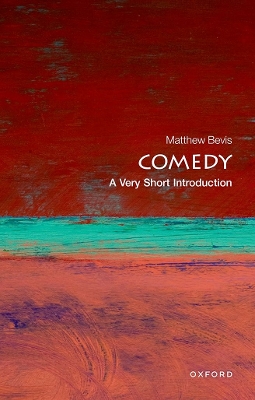To consider comedy in its many incarnations is to raise diverse but related questions: what, for instance, is humour, and how may it be used (or abused)? When do we laugh, and why? What is it that writers and speakers enjoy - and risk - when they tell a joke, indulge in bathos, talk nonsense, or encourage irony?
This Very Short Introduction explores comedy both as a literary genre, and as a range of non-literary phenomena, experiences and events. Matthew Bevis studies the classics of comic drama, prose fiction and poetry, alongside forms of pantomime, comic opera, silent cinema, popular music, Broadway shows, music-hall, stand-up and circus acts, rom-coms, sketch shows, sit-coms, caricatures, and cartoons.
Taking in scenes from Aristophanes to The Office, from the Roman Saturnalia to Groundhog Day, Bevis also considers comic theory from Aristotle to Freud and beyond, tracing how comic achievements have resisted as well as confirmed theory across the ages.
This book takes comedy seriously without taking it solemnly, and offers an engaging study of the comic spirit which lies at the heart of our shared social and cultural life.
ABOUT THE SERIES: The Very Short Introductions series from Oxford University Press contains hundreds of titles in almost every subject area. These pocket-sized books are the perfect way to get ahead in a new subject quickly. Our expert authors combine facts, analysis, perspective, new ideas, and enthusiasm to make interesting and challenging topics highly readable.
- ISBN10 0199601712
- ISBN13 9780199601714
- Publish Date 20 December 2012
- Publish Status Active
- Publish Country GB
- Imprint Oxford University Press
- Format Paperback
- Pages 168
- Language English
